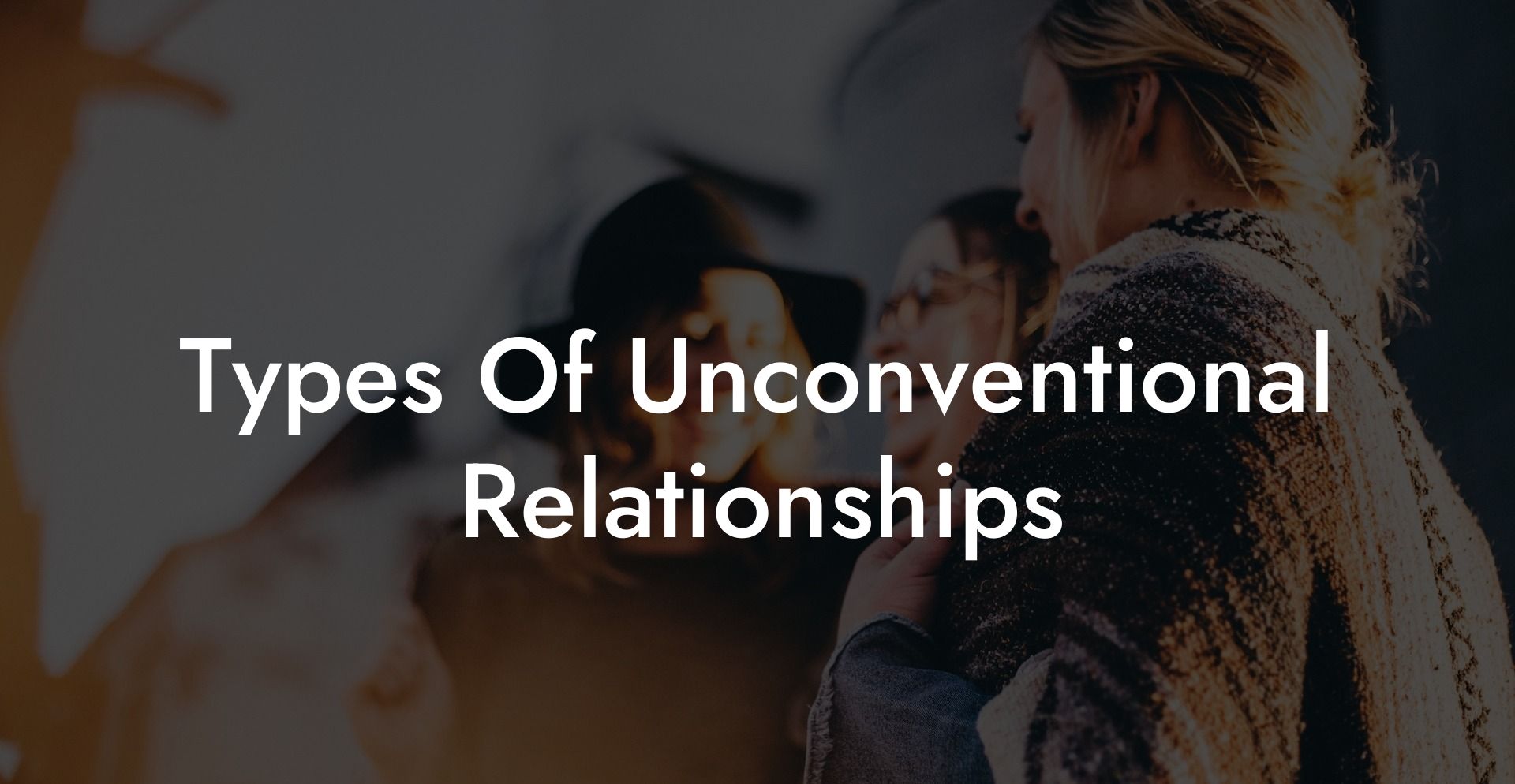As the world continues to evolve and our understanding of love and relationships grows, we find ourselves eschewing traditional relationship models in favor of new, less rigid structures. People are increasingly embracing unconventional relationships that best suit their individual needs, desires, and beliefs. If you're looking to learn more about the spectrum of love and connection – you've come to the right place! In this guide, we'll explore the various types of unconventional relationships, providing you with a comprehensive resource to help you find, celebrate, and share love in the ways that best suit you.
Types Of Unconventional Relationships Table of Contents
1. Polyamory
Polyamory is arguably the most well-known form of non-monogamy. The term, which means “many loves,” refers to relationships where individuals have multiple romantic, emotional, and sometimes sexual partners, all with the knowledge and consent of one another. Polyamorous relationships come in many shapes and sizes, from triads (three people involved) to quads (four people involved), and sometimes even larger constellations. Open communication, trust, and mutual understanding are crucial for the success of a polyamorous relationship.
2. Open Relationships
An open relationship is another form of non-monogamy where a couple allows one or both partners to have sexual experiences with others outside of their primary partnership. While romantic and emotional connections may be limited, open relationships offer a sense of freedom and flexibility for individuals to explore their desires without jeopardizing the commitment to their primary partner. Like polyamory, open relationships rely on clear communication, trust, and boundaries to function well.
3. Swinging
Swinging is a form of non-monogamy primarily focused on recreational sex between multiple consenting partners. Couples involved in swinging, also known as "the lifestyle," may attend events or private parties where they engage in sexual activities with others, often with their partner present. Swinging is typically enjoyed as a shared erotic experience for couples, seeking to spice things up while maintaining their emotional connection.
4. Committed Monogamy with Occasional Threesomes
For couples who wish to explore non-monogamy in a more controlled environment, engaging in occasional threesomes can be a fun and fulfilling way to create new experiences together. This form of unconventional relationship allows for the excitement of including additional partners without straying too far from the security of a committed monogamous relationship. As always, communication and consent are key to ensuring that both partners are comfortable with the arrangement.
5. Relationship Anarchy
Relationship anarchy is a philosophy that emphasizes autonomy, rejecting traditional hierarchies and labels in favor of fluid, personalized connections. This approach to relationships may involve creating unique agreements between partners that constantly evolve based on each person's needs and desires. Relationship anarchists often view all relationships, such as friendships and romantic partnerships, as equally valuable and do not adhere to strict social norms or expectations.
6. Solo Polyamory
Solo polyamory is a form of non-monogamy where individuals prioritize their autonomy and independence while still engaging in multiple romantic or sexual relationships. Unlike other forms of polyamory, solo poly individuals often choose not to have a primary partner or live-in companion. This allows them to maintain their individuality while still enjoying the benefits of multiple connections.
In conclusion, the world of unconventional relationships is vast and diverse, offering numerous ways to find love, connection, and fulfillment. While it may seem overwhelming at first, the key to navigating non-monogamous waters is clear communication, trust, and mutual understanding. If you've found this guide helpful, we encourage you to share it with friends and explore other resources here at The Monogamy Experiment. Help us destigmatize unconventional relationships and create a more open, honest, and loving world for everyone to enjoy.













